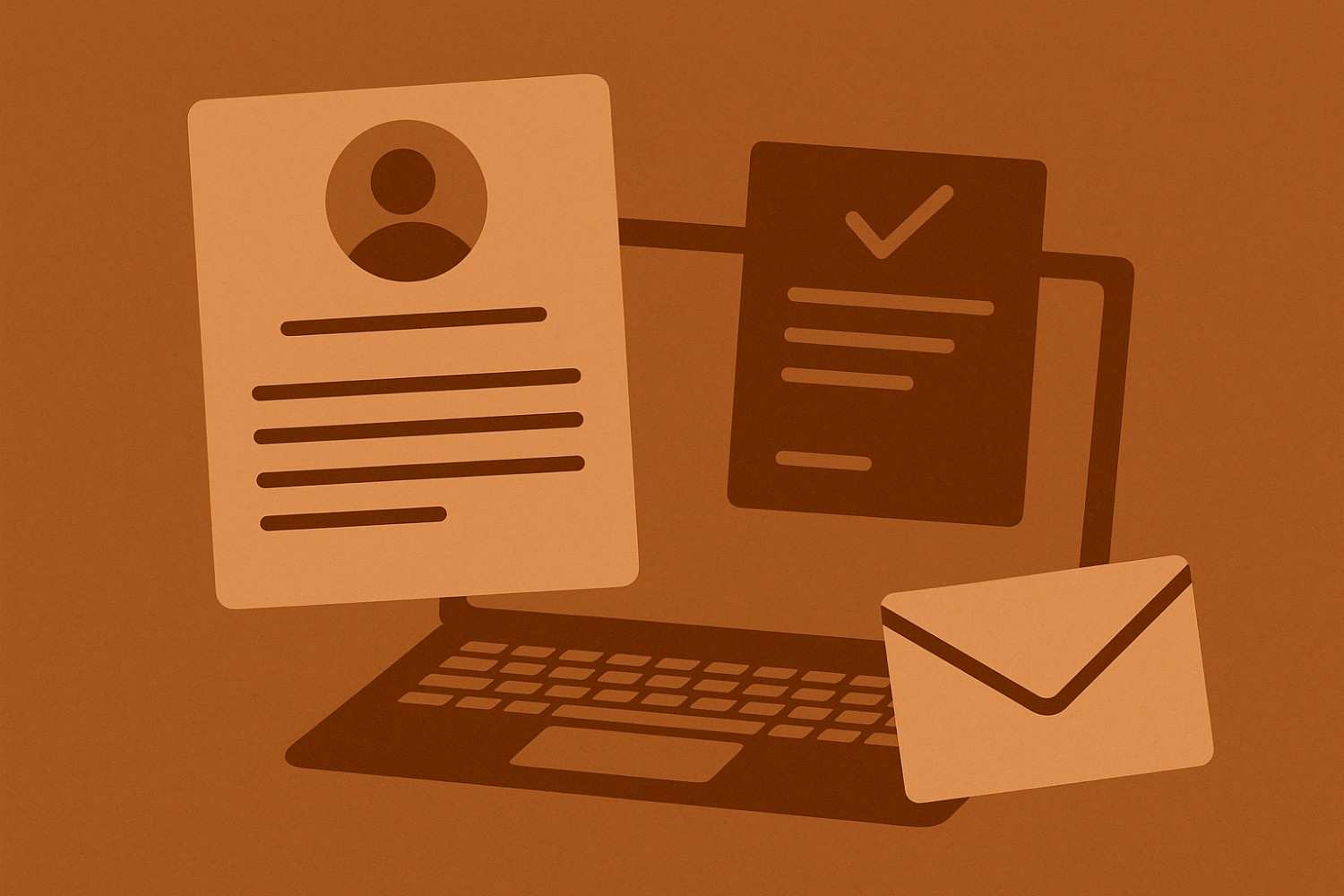Freelance vs Remote Jobs: Which One Is Right for You?

Explore the best remote jobs hiring in 2025 across tech, content, design, and more. Find out where to apply, what...

Applying for a remote job? Learn the best resume format for remote roles and see cover letter examples tailored for...
.jpeg)
Looking for remote work in 2025? Discover top companies actively hiring for remote roles and how to stand out in the...

Freelance or remote? Compare flexibility, pay, job security, benefits, and lifestyle to decide the best...

Prepare for remote interviews with confidence. Explore common remote job interview questions, expert tips, and...

Find top-paying remote jobs in India across tech, marketing, and design. Learn about lucrative work-from-home...

Remote work demands cloud, cybersecurity, data analysis, strong communication, time management and collaboration and...

Learn how freshers can land a remote job with no experience. A practical, timeless guide to finding remote work...

Find part-time work-from-home jobs ideal for stay-at-home moms and housewives looking to balance family and income.

Gain access to top remote job opportunities with work-from-home tips and global hiring companies to launch your...
Resources
-

Set up personalized job alerts to receive notifications about new job openings that match your...
-

Find part-time job opportunities perfect for students, parents, and professionals seeking...
-

Work from home jobs across industries with flexible hours, competitive pay, and real career...
-

Create professional resumes with easy-to-use resume builders. Choose from templates, get...
-

Kickstart your career with internships tailored for students and graduates — explore paid,...
-

Remote jobs have revolutionized how we work, giving professionals the freedom to contribute from...
-

Find the best fresher jobs and entry-level opportunities across IT, Finance, Marketing, and...

Working from home sounds like the ideal modern career, right? But before you can enjoy that flexibility, there’s a big decision you need to make: should you build a freelance business or accept a full-time remote job?
From the outside, these two paths might look almost identical. In both scenarios, you are likely working on a laptop, possibly in your pajamas, and maybe even from your favorite local café.
However, the day-to-day experience, the level of personal responsibility, and the overall lifestyle can be miles apart. It is like comparing two cars that look similar but have completely different engines, capabilities, and require different kinds of maintenance to run smoothly.
This comprehensive guide will walk you through everything you need to know to choose the path that best fits your personality, your financial needs, and your long-term career goals.
What Is Freelance Work?
Freelancing means you are your own boss. You operate as a self-employed professional, essentially running a business of one. You are not tied to a single employer for the long term. This is the path of the "solopreneur."
Instead, you work with a variety of clients who hire you for specific tasks, projects, or a set number of hours. You are in complete control of your professional life. You set your own rates, you choose the projects you want to work on, and you manage your own deadlines.
Of course, this also means you are responsible for everything else. This includes marketing your services, finding new clients, negotiating contracts, sending invoices, and, yes, even chasing down late payments.
Typical freelance roles include writers, designers, developers, marketers, and consultants. However, you can now find freelance opportunities in almost every field.
To attract high-quality freelance gigs, having a standout resume that functions as a professional summary is a great asset. You can craft one using the JobPe Resume Builder, which is designed for freelancers and professionals looking to make a strong first impression.
What Is Remote Work?
Remote jobs are essentially traditional jobs that you perform from home or any location outside of a company office. You are a full-time or part-time employee of a single company, just without the daily commute. You are a "digital team member."
In a remote job, you will likely have set working hours, regular virtual team meetings, and a manager who expects progress updates. You will be using collaborative tools like Slack, Zoom, and project management software like Asana to stay connected with your team as if you were in a virtual office.
The major advantage here is stability and security. You often receive a regular monthly salary, a benefits package that can include health insurance and paid leave, and perhaps even retirement plans. The company handles your taxes, and you benefit from a much higher level of job security.
Remote roles are now common in almost every industry, including tech, customer service, sales, HR, content, and data analytics. A growing number of companies, from startups to large corporations, now hire remotely by default.
To explore which companies are hiring remotely, you can check out JobPe Companies, where you will find profiles of employers who embrace flexible work arrangements.
Freelance vs Remote Jobs: A Deeper Look at the Differences
Let's look beyond the basic definitions and examine the actual day-to-day experience of working in each setup.
Control Over Your Time and Work Freelancers have total control over their schedule. If you are a night owl and want to work at 2 a.m., or if you prefer to take every Thursday off to pursue a hobby, no one is stopping you. You are the master of your own time.
Remote workers, while having the flexibility of location, usually have more structure in their day. You are part of a larger team and must align with their schedule. You will likely have fixed meetings and be expected to be available during core business hours to collaborate with colleagues.
Income Stability and Financial Risk With freelancing, there is no ceiling on your potential income, but there is also no floor. You can have incredibly profitable months, followed by lean months with very little work. This "feast or famine" cycle requires careful financial management.
In a remote job, your income is stable and predictable. Your paycheck arrives on time every month, regardless of short-term fluctuations in your output or the company's sales pipeline. This stability makes it much easier to budget and plan for long-term financial goals.
The Burden of Administration As a freelancer, you spend a significant amount of time on non-billable administrative tasks. This includes marketing yourself, writing proposals, negotiating contracts, sending invoices, tracking payments, and managing your own business taxes.
As a remote employee, all of this is handled for you. The company's specialized teams bring in the work, and the finance and HR departments manage your payroll, taxes, and benefits.
Career Growth and Team Structure In a remote job, you are part of a team and often have a clear career ladder. You can receive mentorship from senior colleagues and work towards a promotion to a leadership position.
Freelancers are typically solo practitioners. While you can grow your income by increasing your rates or taking on more clients, a formal "promotion" does not exist unless you decide to build your own agency and hire others.
Skill Development As a freelancer, you are responsible for your own upskilling. You must proactively learn new skills to stay competitive. In a remote job, companies often provide structured training programs and learning opportunities.
Why People Choose Freelancing
Many people are drawn to the freelance lifestyle because it represents the ultimate form of professional freedom and autonomy.
You have the power to decide who you want to work with. You can reject clients or projects that do not align with your values or interests.
You also have complete control over your workload. You can decide to take on more projects when you need to save money, or work fewer hours when you want to travel or focus on personal development. You can even pivot to a new niche or service offering whenever you choose.
This level of freedom is particularly attractive to creative professionals, parents with unpredictable schedules, digital nomads, and anyone who is tired of the constraints and politics of corporate life. There is also the potential to earn significantly more than you would in a traditional job if you have in-demand skills.
Why Remote Jobs Remain Popular
Remote jobs appeal to people who want the benefit of flexibility without the instability and administrative burden of running their own business. It is a perfect middle ground for many.
You do not have to worry about the constant pressure of finding your next client. You receive a consistent paycheck every month, which provides immense financial and psychological security.
You also receive valuable benefits that freelancers often have to fund themselves. This includes health insurance, paid vacation and sick days, and often company bonuses or stock options.
Remote jobs also offer a more traditional path for long-term career growth. You can climb the corporate ladder, switch to a different team within the company, or be promoted to a leadership position.
This path is ideal for professionals who enjoy being part of a team, want a clearly defined role, and place a high value on financial stability and security.
Income: What Can You Realistically Expect?
Let’s talk about money in more detail.
A freelancer's income is highly variable. A beginner freelance writer might earn a modest amount per hour, while an experienced software developer could command a very high hourly rate. Consultants and specialists often price by the project, with fees ranging from small amounts to very large sums depending on the scope of work.
However, freelancers must cover their own "hidden costs." There are no paid benefits. You must save for your own taxes, fund your own health insurance, and pay for your own retirement. You also do not get paid for vacation time or sick days.
On the other hand, remote employees receive a stable paycheck. A remote customer support agent has a predictable annual salary, while a remote software engineer can earn a much higher, but still stable, income. This salary is often part of a "total compensation" package that includes bonuses and the monetary value of benefits.
To compare actual salary figures across different roles, you can use the JobPe Salaries Tool.
The Legal and Tax Differences
It is also important to understand the legal and tax implications of each path, which can vary by country.
In general, freelancers operate as independent businesses. This means they are responsible for paying their own self-employment taxes and, depending on their income, may need to register for a Goods and Services Tax (GST) number. They also need to use legal contracts to protect themselves in their dealings with clients.
Remote employees have their taxes automatically deducted from their paychecks by their employer. They are provided with standard employment contracts and are protected by labor laws.
Choosing Your Path: A Decision for Today, Not Forever
There is no single "right" answer in the debate between freelancing and remote work. The best choice for your friend might not be the best choice for you. The decision ultimately comes down to a core trade-off: autonomy vs. stability.
Some people crave the independence and high earning potential of freelancing. Others value the structure, security, and team environment of a remote job.
The good news is that you are not locked into one path forever. You can start with a full-time remote job to build a financial cushion and then transition to freelancing later. Or you can start with freelancing to build a diverse portfolio and then join a company for more stability. You can even pursue a hybrid model.
The most important thing is to understand the pros and cons of each and choose the option that aligns with your current life situation and your long-term goals.
The best way to figure out what suits you is to start exploring. Use a platform like JobPe to browse both freelance gigs and full-time remote job descriptions. See what kind of work excites you.
To build a strong resume, sharpen your pitch for clients or employers, and apply smartly to opportunities, you can try these JobPe tools: - Resume Builder for freelance and remote-ready resumes - Mock Interviews to boost your speaking and pitching skills - Auto Apply Tool to speed up your job hunt - Companies to see who is hiring remotely - Interview Questions to practice like a pro
Let your own experience and preferences guide you.
